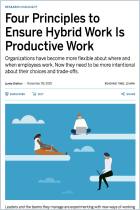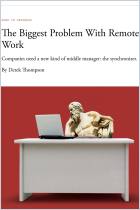Si la notation vous indique le niveau qualitatif du livre en fonction de nos deux critères principaux, elle n'explique aucune caractéristique particulière. Nous nous appuyons donc sur 20 qualités qui définissent les traits essentiels de l'ouvrage :
Pratique – Vous obtiendrez des conseils que vous pourrez aisément mettre en pratique sur votre lieu de travail ou dans des situations quotidiennes.
Analytique – Vous comprendrez les mécanismes internes du sujet abordé.
Connaissance du contexte – Vous aurez accès à des connaissances contextuelles pouvant servir de base à l'action ou à l'analyse.
Audacieux – Vous découvrirez des arguments susceptibles de rompre avec les points de vue dominants.
Complet – Vous trouverez une étude exhaustive du sujet.
Exemples concrets – Vous obtiendrez des conseils pratiques illustrés par des récits d'applications concrètes ainsi que des anecdotes authentiques.
Polémique – Vous serez confronté à des idées faisant l'objet d'un débat animé.
Éloquent –Vous prendrez plaisir à découvrir un ouvrage rédigé ou composé de main de maître.
Captivant – Vous serez captivé par cet ouvrage du début à la fin.
Révélateur – Vous découvrirez des informations très surprenantes.
Niveau débutant – Cet ouvrage constitue un bon point de départ si vous avez peu ou aucune expérience/connaissance du domaine traité.
Niveau Expert – Vous obtiendrez des informations/recommandations spécialisées utiles dans votre domaine de spécialité.
Sujet d'actualité – Plongez au cœur d'un thème qui fait l'objet d'un vif débat.
Innovant – Découvrez des idées et des concepts innovants sur des tendances et des produits inédits.
Vu de l'intérieur – Vous aurez le privilège d'être initié par un spécialiste du domaine.
Stimulant – Vous aurez envie de mettre immédiatement en pratique les conseils prodigués.
Aperçu – Vous acquerrez une appréciation globale du sujet et de ses aspects principaux.
Approche scientifique – Vous aurez accès à des faits et des chiffres fondés sur la recherche scientifique.
Visionnaire – Vous aurez un aperçu de l'avenir et ce qu'il vous réserve.
Bien structuré – Vous trouverez ce contenu particulièrement bien structuré, ce qui facilite l'adhésion à ses idées ou leur mise en œuvre.
























Comment on this summary